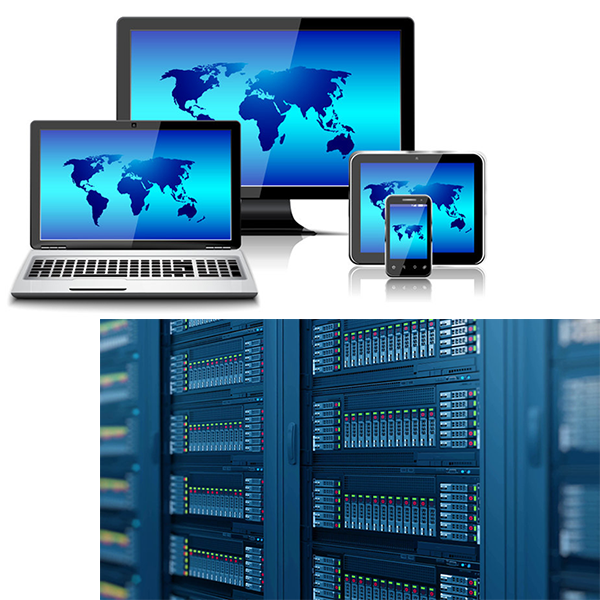Our software is designed and used to satisfy the needs of an organization rather than individual users.
ERP for example covers: Accounting, Human Resource (HR), Performance Reporting, Customer Services, Sales, Procurement, Production, Distributifa-desktopon etc.
SCM is the management of the flow of goods and services, between businesses and locations, creating an end to end order fulfilment solution (point of origin to consumption)
MRP Software solutions are designed to ensure that inventory procurement and material storage is managed to ensure availability during production. Tracking labour and materials utilisation ensures that productivity is efficient.
CMMS is a software package that maintains a computer database of information about an organization's maintenance operations


At Aeternum Software we develop all of our solutions in-house using the latest software frameworks and libraries
Our team follow an agile methodology based on iterative development, where requirements and solutions evolve through collaboration between ourselves, clients and any relevant standards organisations.
We always strive to move onto the latest stable release of all software platforms and frameworks once thoroughly tested for compatibility and security.
All of our packages are shipped using Linux based Cloudflare hosting services which provide maximum security, uptime and performance.
Our technologies platforms includes Laravel, Vue JS, PHP, Javascript, Maria DB, SQLite, Java
We pride ourselves in our customer service. On all of our solutions we provide access to the online knowledge centre, this incorporates a set of white label documents that offer “how to Do” tasks. Our support ticketing system provide rapid response to all our customer and for thoughts who need it a 24/7 365 online service. Recently we have added a video service set for both product training and user manual on all of our SaaS Packages.
We provide a one-stop-shop that removes any potential issue in service. Our customer has access to their financial management of all cost bases including Licences, Servers and Applications Service Level Agreements. Security updates are carried out at no extra cost and automatically updated.
Software as a Service is a software licensing and delivery model in which software is licensed on a subscription basis and is centrally hosted. Any hardware included in the package and software updates are the responsibility of the provide.
Custom built solutions take longer to build as the require scoping and development, cost can be higher with a greater risk of security and bugs issues. SaaS solutions are more cost effective initially however the rental cost is applied for the duration of usage
Custom built solutions are designed and developed as individual applications based on a customer’s specific requirements. SaaS solutions are ready made modules integrated into a flexible application.
All solutions are designed and built progressively. Often it is better to approach your project by outlining all of your requirements and then identify the dependencies to form integrated modules that can be linked.
Yes our solutions offer customisation such as your own brand logo and house colours. As the full application is designed around modules, the solutions can be made variable allowing for the business to growth into its full potential.
Custom Solutions are often located on the customer’s own network. This means that the customer uses their own in-house IT staff. I the business does not have and IT department then the business may have a maintenance agreement with the development company.